Meet Soul Sacrifice, the Vita's potential Monster Hunter slayer
Inafune's co-op action game has heart as well as claws.
"With great power comes the need for great sacrifice," says Mega Man creator Keiji Inafune, offering a riff off Spider-Man's mantra to apply it to his upcoming game, Soul Sacrifice.
It looks like Inafune sacrificed quite a bit himself, leaving his cushy position as a producer at Capcom after a 23-year stint at the company. But with that sacrifice came power. In this case, it means he can make Soul Sacrifice, one of the oddest games on the Vita's horizon.
"In a typical game these days it's about earning points and defeating a certain number of enemies," says Inafune. "That kind of game was probably an old style game." After making countless iterations of Mega Man and other action properties like Onimusha, he seems fatigued from such simple win or lose scenarios, and sets his sights on creating more emotional experiences.
"Some of the newer games might make you cry. If they have a good story it's like watching a movie. So we wanted to incorporate that emotional aspect into this new game."
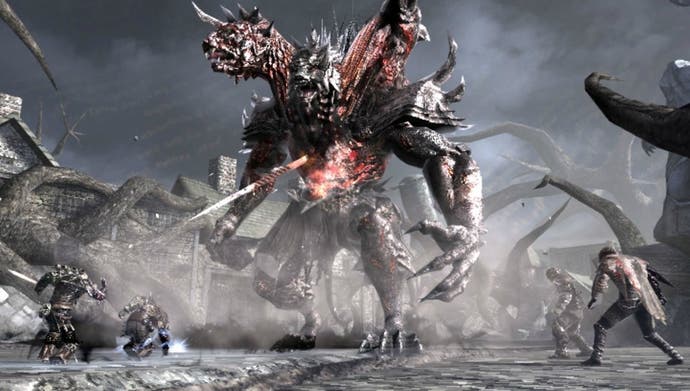
Soul Sacrifice may not look particularly tear-jerking right away. It's got giant monsters, magic spells, multiplayer - all the things one typically associates with an escapist chill-on-the-couch experience. But that's just the window dressing. Dig deeper and you'll find that Soul Sacrifice is actually a far more thoughtful, challenging title than its dark fantasy aesthetic would indicate.
"Some of the newer games might make you cry. If they have a good story it's like watching a movie. So we wanted to incorporate that emotional aspect into this new game."
Keiji Inafune
You play as an imprisoned sorcerer who's about to be sacrificed. While awaiting your execution, you happen upon an ancient talking book. This tome operates as a portal to a parallel universe where you can relive the battles of past sorcerers. By practicing your craft, you can grow stronger and eventually become powerful enough to escape your captors. That's the goal, anyway.
In practice this gives each stage a Monster Hunter feel, where your goal is to defeat a boss, take out a throng of enemies, or collect certain items. Each stage puts you in a team of up to four characters either controlled by other players or AI. In Soul Sacrifice's most interesting gimmick, you can sacrifice yourself for the greater good by pulling off extremely powerful kamikaze spells. One sets you ablaze, another allows a teammate to turn your spine into a sword, and another creates a massive ice spell.
"Some of the bosses are too strong to defeat without sacrificing someone's life," says Inafune. "It's not that you're not doing well. It's physically impossible." This adds a fourth wall-breaking layer of personal drama to each situation. "The theme of this game is sacrifice. You're asked to make the choice every step of the way. Depending on who you're playing with, you'll have a different story every time."
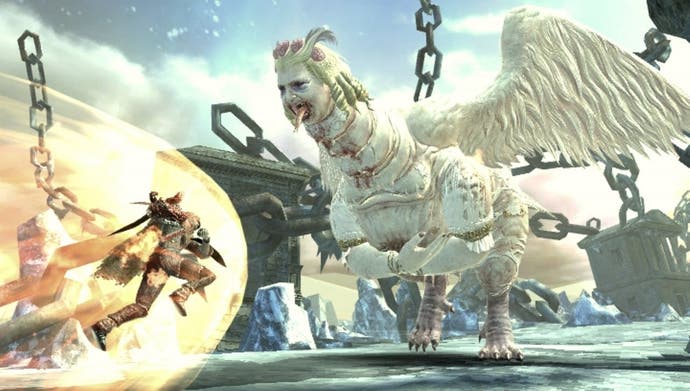
And what if no one chooses to take one for the team? As it turns out, downed comrades can either be revived or sacrificed, something I learn the hard way. After taking too much damage against a flaming jack-o-lantern boss, my sorceress partner runs over to me as if to lend a hand. I arise engulfed in flames with a prompt allowing me to unleash a massive explosion. After doing so my sorcerer collapses and a number starts counting down to a game over. "What happened?" I ask the demo rep.
"She sacrificed you," he tells me.
This may seem cheap for an AI to do, but it turns out I'm not getting the full story. Your character is the amalgamation of all the choices you've made up to that point, and Soul Sacrifice is littered with moral conundrums. Each enemy you defeat can be saved or sacrificed. Sacrifice them and you'll gain more offensive capabilities. Save them and your rewards will go towards defense.
What separates Soul Sacrifice from so many games with moral choices like Infamous, BioShock, and Mass Effect is that there's no right or wrong answer and you're not encouraged to pick a side and stick to it. "If you always sacrifice or save, the game will prepare so many decisions that will make it difficult for you to do one or the other all the time," says Inafune.
Adding an extra emotional layer, each enemy was once a sorcerer too. "All the enemy characters are monsters, but they were all once human, and they have a reason for being that monster," explains Inafune. "All the monsters are ugly, but they represent corrupted people in the real world who lost their souls in greed and turned into monsters." As you fight each boss, they'll wail laments like "I want to go home," or talk of missing their family.
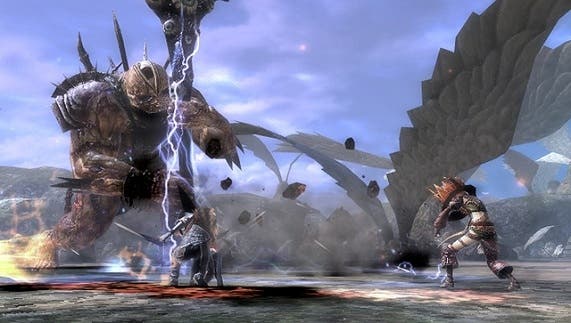
"There's a backstory to each character, including the enemies," adds Inafune. "If you choose to save that monster you can bring them back to human." Evidently my sorcerer had done something to piss his partner off somewhere along the way.
As you define your character, your appearance changes. Sacrificing foes and comrades strips you of your humanity and your corruption will cause you to look more demonic. This is the only indicator of your karma. Inafune is quick to deride the artifice of meters. "In real life there's no meter," he explains. "There's no one right answer. I want to leave it to the player to choose and make decisions. And to think about those decisions they've made."
Your decisions change not only your appearance, stats, and relationships with NPCs, but what kinds of spells you acquire as well. Soul Sacrifice's combat system is quite unusual in that it's not a button-masher and you don't have any standard attacks. Instead, you equip six spells at a time that operate on a cooldown meter.
From the hands-on demo, I have a spell that turns me into a boulder capable of ramming into foes, another power gives me a comically large right arm that can be used to punch an enemy three times or charged for one giant attack, while a defensive spell temporarily turns my evasive roll into a quick, far-reaching dash. Each spell has limited uses, but magical golden pools occasionally appear (I think my partner spawns them) that allow me to recharge my supply.
With its foreboding art style and grim systems, Soul Sacrifice represents a bold new change of direction for the man behind the Blue Bomber, but it's a welcome one. Its focus on player choice and interpersonal drama represents a thought-provoking spin on Monster Hunter, while the melancholy story flies in the face of the "rah-rah" mentality one usually expects from a co-op action game. I can already tell that I'll be sacrificing plenty of time to it when it hits western shores sometime next year.
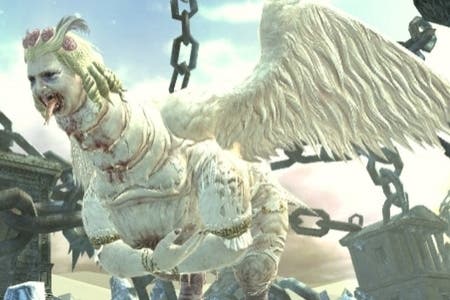

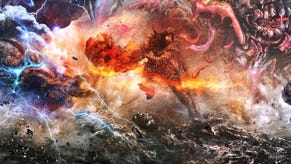
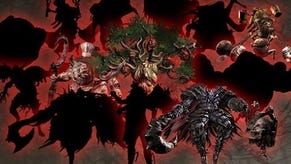
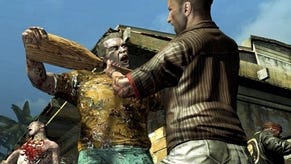

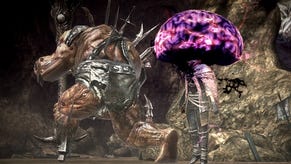
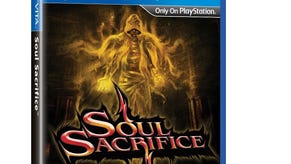
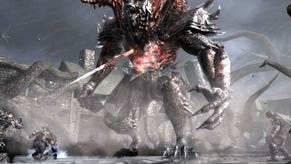




.png?width=291&height=164&fit=crop&quality=80&format=jpg&auto=webp)



